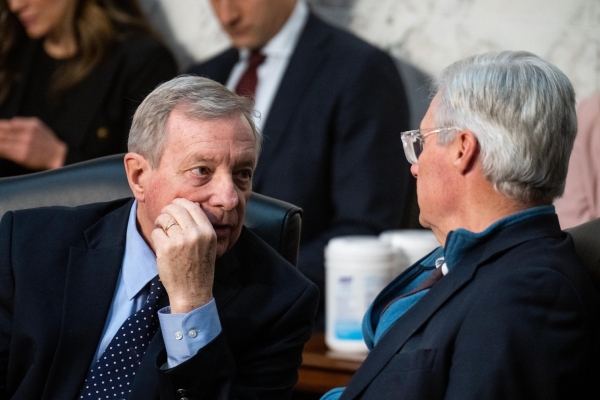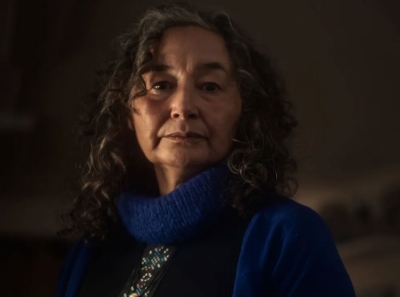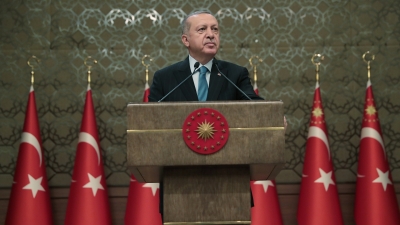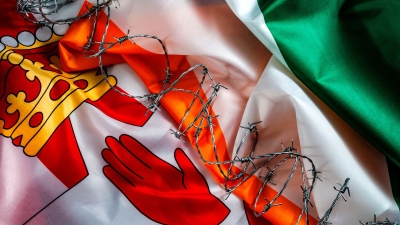Series: Friends of the Court: SCOTUS Justices’ Beneficial Relationships With Billionaire Donors
Supreme Court Justice Clarence Thomas’ decadeslong friendship with real estate tycoon Harlan Crow and Samuel Alito’s luxury travel with billionaire Paul Singer have raised questions about influence and ethics at the nation’s highest court.
The Senate Judiciary Committee voted on Thursday to authorize subpoenas of billionaire businessman Harlan Crow and conservative legal activist Leonard Leo as part of the committee’s ongoing effort to investigate ethics lapses by Supreme Court justices.
But the ultimate fate of the subpoenas is uncertain. If Crow and Leo defy the information requests — which ask for a detailed accounting of gifts, transportation and lodging the two men provided or helped organize for Supreme Court justices and the justices’ relatives — Democrats would need a 60-vote majority to enforce the subpoenas. Currently, Democrats hold a one-vote advantage in Congress’ upper chamber.
Republicans have mounted fierce opposition to the inquiry into Crow and Leo, who have for months refused to comply with the committee’s requests. The vote to issue the subpoenas fell along party lines, with all 11 of the Democrats voting in favor and most Republicans walking out of the hearing in protest as the vote was taken.
Sen. Dick Durbin, D-Ill., the Judiciary Committee chairman, said at Thursday’s hearing that the revelations reported by news organizations including ProPublica spurred the committee’s action to demand more information about people close to the justices.
As ProPublica reported, Crow, a major Republican donor and real estate magnate, paid for lavish travel and gifts for Justice Clarence Thomas over a span of decades — gifts that Thomas repeatedly failed to disclose. ProPublica also revealed that Leo, an architect of the high court’s conservative majority, helped organize a trip to Alaska for Justice Samuel Alito that included a private jet flight provided by Paul Singer, a hedge-fund billionaire who later had business before the nation’s highest court. Alito did not disclose the flight.
“Both Leonard Leo and Harlan Crow are central players in this crisis,” Durbin said. “Their attempts to thwart legitimate oversight efforts of Congress should concern all of us.”
In response to the subpoena vote, Leo said in a statement: “Senate Judiciary Committee Democrats have been destroying the Supreme Court; now they are destroying the Senate. I will not cooperate with this unlawful campaign of political retribution.”
A spokesperson for Crow said in a statement that the subpoena was “invalid” and demonstrated “the unlawful and partisan nature of this investigation.” But the spokesperson added that Crow had offered “extensive information” to the committee and “remains willing to engage with the Committee in good faith, just as he has consistently done throughout this process.”
Justices Thomas and Alito have said they weren’t required to disclose the gifts and trips unearthed by ProPublica and other news outlets. In response to previous stories, Crow and Leo have said they did nothing wrong in their dealings with the justices.
On Nov. 13, the Supreme Court announced its own code of ethics for the first time in history, governing conflicts of interests, gifts and recusal standards. But ethics experts noted that the new code contains no enforcement mechanism, and Durbin said it “falls far short” of what the public should expect from the nation’s highest court.
Republicans on the Judiciary Committee used Thursday’s hearing to air a litany of grievances against their Democratic counterparts for seeking to subpoena Crow and Leo.
Sen. Lindsey Graham of South Carolina, the committee’s top Republican, called the subpoena effort “garbage,” “a jihad” and “political theater.” Even though the committee subpoenaed private citizens several years ago under Graham’s leadership during an investigation into the federal government’s handling of Russian interference in the 2016 election, Graham said Democrats had unfairly targeted private citizens for retribution in the case of Crow and Leo.
He also accused Democrats of acting at the behest of unnamed “outside” forces and questioned why they hadn’t moved to a full vote on an existing judicial ethics bill.
“I don’t buy one bit [that] this is about fixing a problem,” Graham said on Thursday. “This is about an ongoing effort to destroy this court, to destroy Clarence Thomas’ reputation, to pack the court, to get your way.”
In a statement after the vote, Sen. Sheldon Whitehouse, D-R.I., a committee member and vocal supporter of judicial ethics reform, questioned the strong opposition from his Republican counterparts.
“Republicans have said our investigation into billionaire influence at the Court will destroy the institution,” he said. “All of this obstruction raises the question: what are Republicans so concerned we will find has been happening at the Court that it will destroy the institution? Whatever it is, the American people should know about it, and today’s vote was a big step toward learning the truth.”
Until recently, there was bipartisan agreement on the need for oversight and ethics reforms focused on the judicial branch, including the Supreme Court.
In February 2021, Graham teamed up with Whitehouse to ask Chief Justice John Roberts about when the high court planned to create a code of ethics or at least bring its rules about accepting and disclosing gifts in line with the other branches of government.
In June 2021, Whitehouse and Sen. John Kennedy, R-La., co-signed a letter that requested information from the U.S. Marshals Service about Supreme Court justices’ travel and the costs to taxpayers for providing security to the jurists.
And in 2022, Republican and Democratic lawmakers passed legislation that extended disclosure rules and regulations around stock trades by elected officials to include judges.
But ever since Democrats first began asking Leo, Crow and several other individuals about their interactions with the justices, Republicans have strongly pushed back. Republican senators offered 177 amendments to the Crow and Leo subpoenas that touched on everything from liberal dark money groups to border-security policy. The amendments were not taken up at Thursday’s hearing.
Democrats on the Judiciary Committee initially requested information from Crow back in May in response to ProPublica’s reporting about his relationship with Thomas. Then, in July, Whitehouse and Durbin asked Leo for similar information about his dealings with justices after ProPublica disclosed Leo’s role in arranging Alito’s 2008 Alaska trip.
Thomas and Alito have said they weren’t required to disclose the gifts and trips. In response to previous stories, Crow and Leo have said they did nothing wrong in their dealings with the justices.
Durbin said Crow had offered to provide five years’ worth of information to the committee, but Democrats said that failed to fully respond to their requests. Leo, for his part, has entirely refused to cooperate with the committee. A month ago, Democrats announced that they planned to issue subpoenas for Crow and Leo.
Still, Democrats have managed to gather new information as part of their inquiry.
Several weeks ago, Durbin announced that Robin Arkley II, a longtime donor to conservative legal groups who provided free lodging to Alito on the 2008 Alaska fishing trip, had cooperated by providing information to the committee. Democrats on the Senate Finance Committee, meanwhile, received and publicized financial information received from Anthony Welters, a businessman who provided a personal loan to Thomas to purchase an RV. According to the Welters’ information released by the committee, Thomas did not repay “a substantial portion” of the $267,230 loan he received from Welters.
If Crow and Leo defy the subpoenas issued on Thursday, what comes next isn’t immediately clear. In an earlier interview, Whitehouse told ProPublica that he believed there were several options available to enforce the subpoenas, including using “an old Senate rule” under which enforcement would be handled directly by the U.S. attorney general if the Justice Department agreed to do so.























